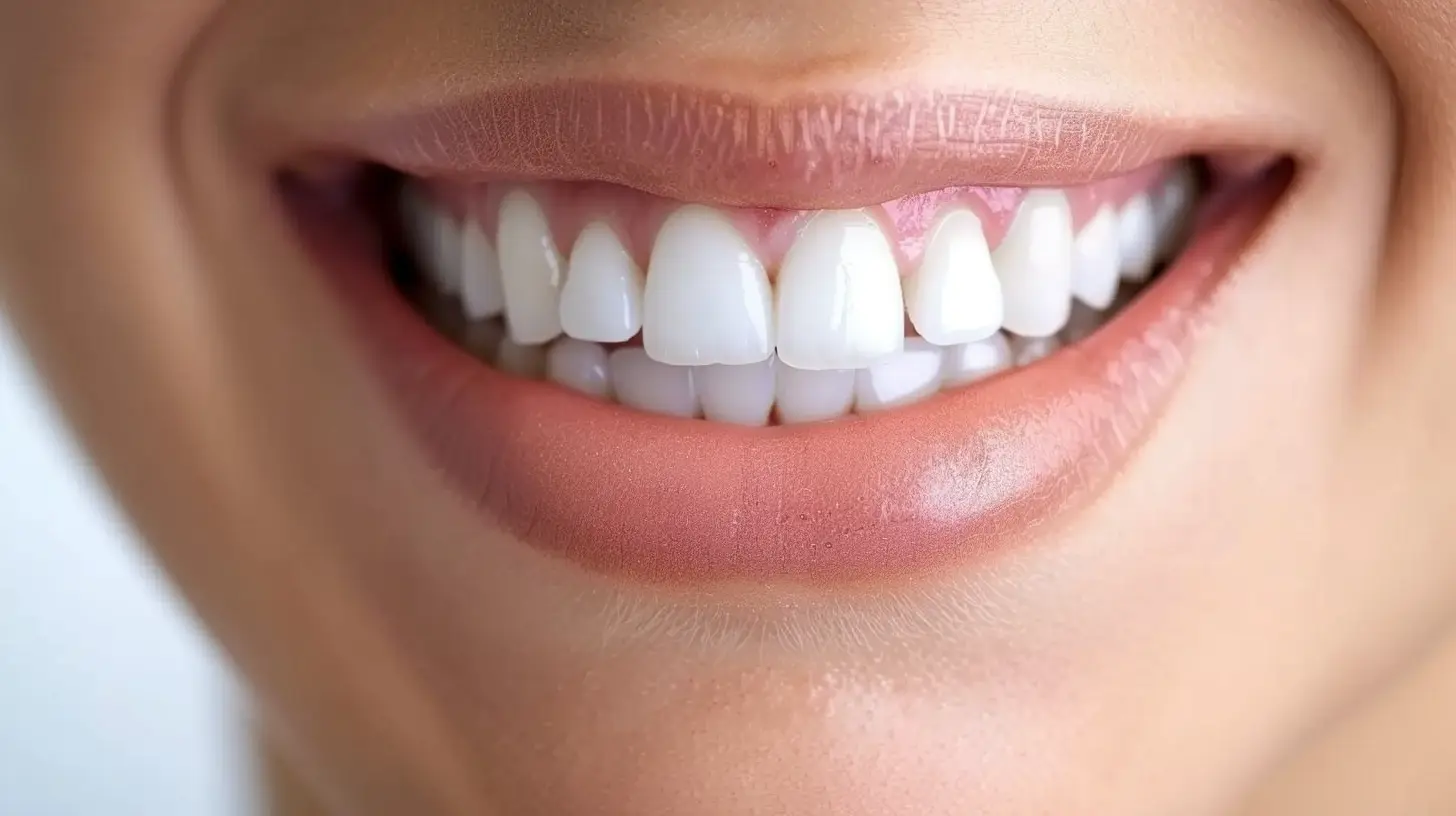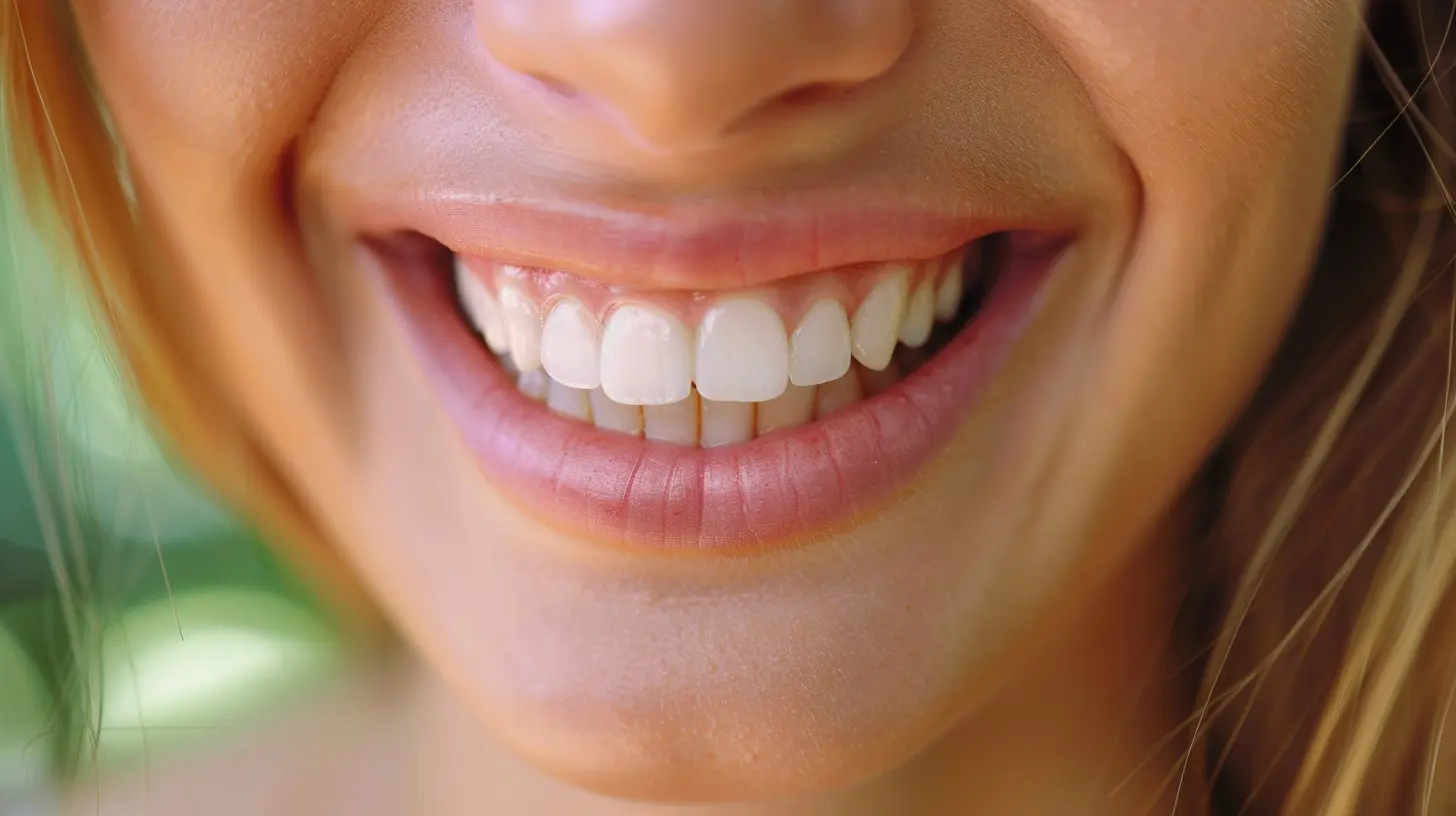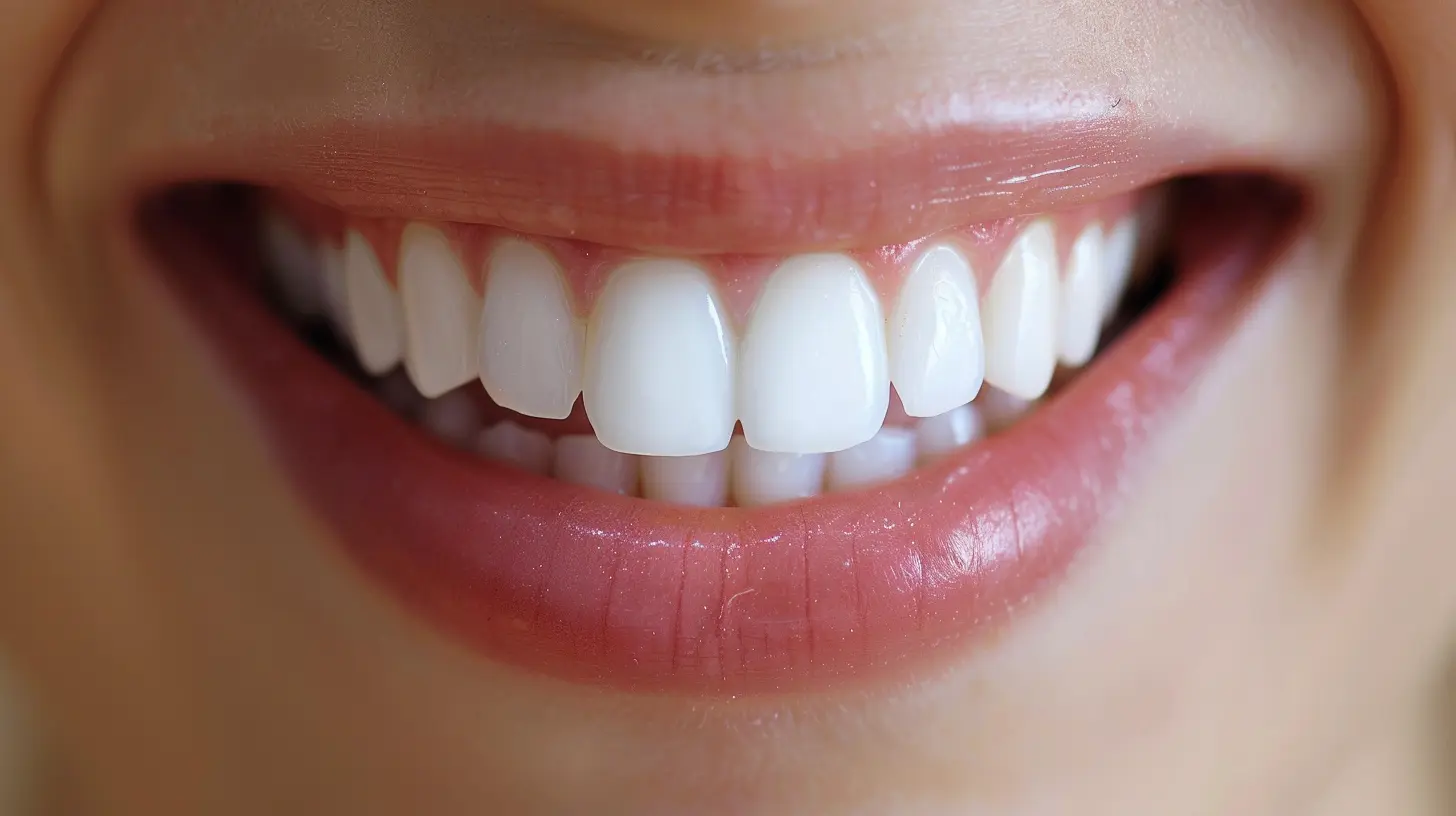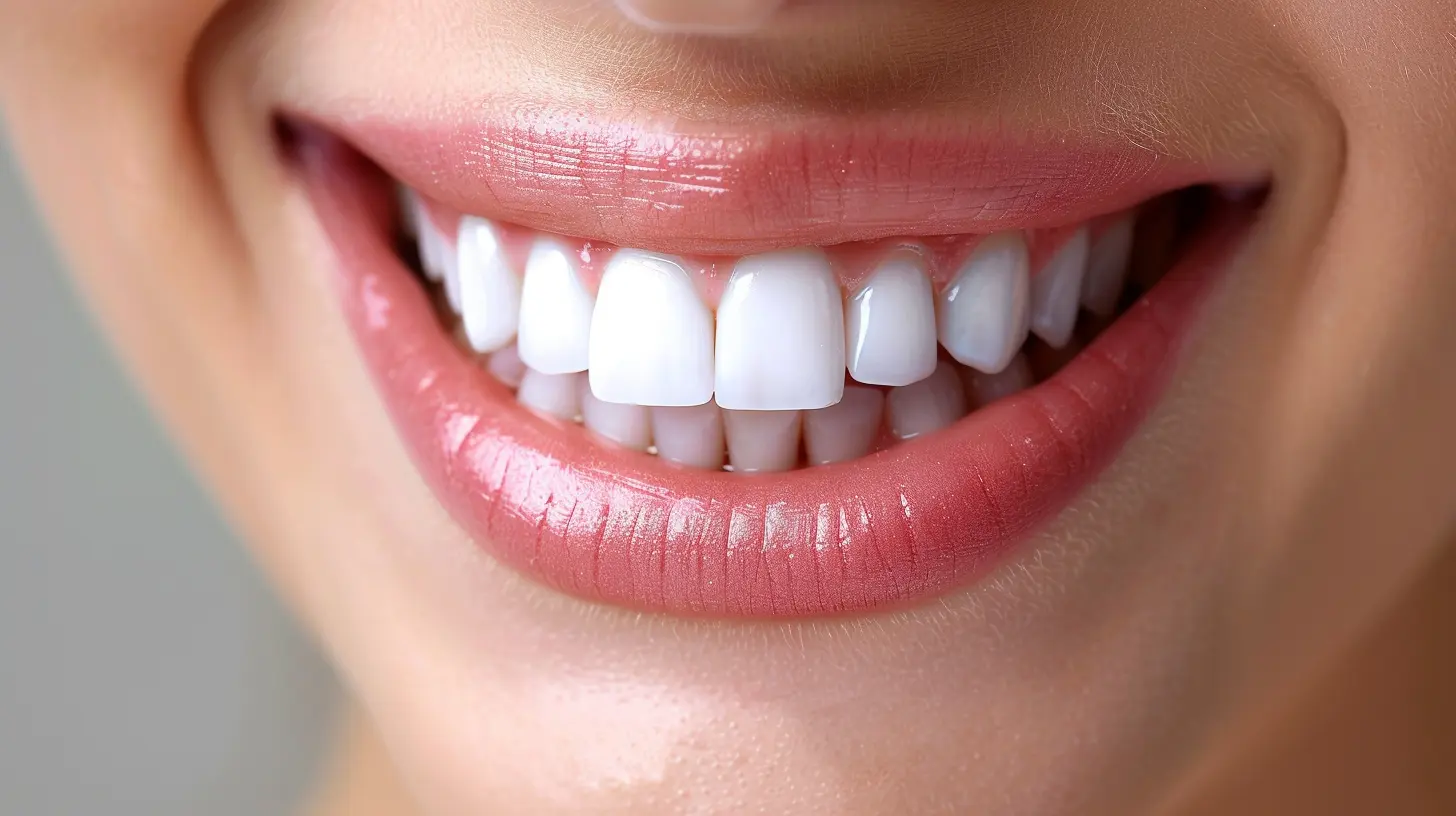How to Recover from Receding Gums
14 May 2025
Receding gums can be a real pain—literally and figuratively. They not only affect your smile but also expose the sensitive roots of your teeth, leading to discomfort, cavities, and even tooth loss if left unchecked. If you've noticed your gums pulling back, don’t panic! The good news is that while gum recession can’t always be completely reversed, you can absolutely slow it down and promote healthier gums.
In this article, we’ll break down everything you need to know about gum recession—what causes it, how to stop it in its tracks, and the best ways to support gum health.

What Causes Receding Gums?
Before we dive into recovery tips, let’s talk about what causes gum recession in the first place. Several factors contribute to this problem, including:1. Poor Oral Hygiene
Not brushing and flossing properly allows plaque and tartar to build up, leading to gum disease—one of the primary reasons for receding gums.2. Aggressive Brushing
Ironically, brushing too hard or using a hard-bristled toothbrush can wear away your gum tissue, causing it to recede over time.3. Gum Disease
Gingivitis and periodontitis are major culprits when it comes to gum recession. These infections weaken and destroy gum tissue, making them shrink away from your teeth.4. Genetics
Sometimes, gum recession runs in families. If your parents had gum problems, you might be more prone to them too.5. Smoking and Tobacco Use
Smoking reduces blood flow and weakens gum tissue, making it easier for bacteria to invade and cause gum recession.6. Teeth Grinding (Bruxism)
Grinding your teeth puts excessive pressure on the gums, which can slowly cause them to pull away.7. Misaligned Teeth
Crooked teeth or an improper bite put uneven pressure on your gums, leading to gradual recession.
Can Receding Gums Grow Back?
Here’s the hard truth: once gum tissue has receded, it doesn’t typically grow back on its own. Unlike other tissues in your body, gum tissue doesn’t regenerate the same way. But don’t lose hope! You can still take steps to stop further gum loss and even improve the health of the remaining tissue.Let’s get into how you can recover from receding gums and maintain a healthy smile. 
How to Recover from Receding Gums
1. Improve Your Oral Hygiene Routine
If your gums are receding, taking proper care of your teeth is your first line of defense. Here’s what you need to do:- Use a Soft-Bristled Toothbrush – Hard bristles can further damage your gums. Stick to a soft-bristled brush and use gentle, circular motions.
- Brush Twice a Day – Make sure you're brushing thoroughly but not aggressively.
- Floss Daily – Flossing removes plaque and food particles that could irritate your gums.
- Use an Antibacterial Mouthwash – This helps keep bacterial growth at bay and promotes gum health.
2. Switch to a Gum-Friendly Diet
What you eat plays a huge role in your gum health. Try incorporating:- Vitamin C-Rich Foods – Oranges, strawberries, and bell peppers help strengthen gum tissue.
- Omega-3 Fatty Acids – Found in salmon, flaxseeds, and walnuts, omega-3s have anti-inflammatory properties that support gum health.
- Green Tea – It contains antioxidants that may reduce inflammation and slow gum disease progression.
- Dairy Products – Cheese, yogurt, and milk provide calcium and phosphates that strengthen both teeth and gums.
3. Use Natural Remedies for Gum Health
Nature has some powerful ingredients that can help soothe and support your gums:- Aloe Vera Gel – Known for its healing properties, aloe vera can help reduce gum inflammation and promote healing.
- Saltwater Rinse – A simple saltwater rinse can help kill harmful bacteria and reduce gum inflammation.
- Coconut Oil Pulling – Swishing coconut oil in your mouth for 10–15 minutes daily may help remove toxins and bacteria that contribute to gum disease.
4. Quit Smoking and Avoid Tobacco
If you smoke, quitting is one of the best things you can do for your gums. Smoking restricts blood flow to your gums, making it harder for them to heal and fight off infections.5. Manage Teeth Grinding (Bruxism)
If you grind your teeth at night, wearing a mouthguard can protect your gums from further damage. If stress is a trigger, try relaxation techniques like meditation or yoga.6. Try Medicinal and Over-the-Counter Treatments
- Medicated Mouthwashes – Prescription mouthwashes can help kill bacteria and reduce inflammation.- Desensitizing Toothpaste – If your receding gums have made your teeth sensitive, using desensitizing toothpaste can help.
7. Consider Gum Grafting Surgery (If Necessary)
In severe cases, when gum recession exposes too much of the tooth root, a gum graft may be needed. This procedure involves taking tissue from another part of your mouth (often the roof of your mouth) and attaching it to the affected area to cover exposed roots.
Preventing Further Gum Recession
Once you've taken steps to stop gum recession, keeping your gums healthy should be a priority. Here’s how:- Maintain Consistent Oral Hygiene – Brush and floss regularly to prevent plaque buildup.
- Visit Your Dentist Regularly – Regular cleanings remove tartar that can contribute to gum disease.
- Use a Mouthguard if Needed – Protect your teeth from grinding damage.
- Stay Hydrated – Drinking plenty of water helps wash away harmful bacteria.
- Know Your Family History – If gum disease runs in your family, be extra diligent about oral care.
Final Thoughts
Recovering from receding gums requires a mix of good oral hygiene, dietary changes, natural remedies, and sometimes professional treatments. While you can’t magically regrow lost gum tissue, you can prevent further damage and keep your gums as healthy as possible.Taking care of your gums is just as important as caring for your teeth. After all, healthy gums are the foundation of a strong, confident smile. So take action today—your future self (and your dentist) will thank you!
all images in this post were generated using AI tools
Category:
Healthy TeethAuthor:

Jackson Mahoney
Discussion
rate this article
4 comments
Sloan McHugh
Great article! It’s essential to maintain good oral hygiene and consider natural remedies alongside professional treatment. Regular dental check-ups and a balanced diet can also support gum health. Thank you for sharing these practical tips for recovery; they empower readers to take action!
May 18, 2025 at 2:27 PM

Jackson Mahoney
Thank you for your insightful comment! I'm glad you found the tips helpful for promoting gum health. Your emphasis on a holistic approach is spot on!
Edith Bell
Receding gums got you down? Don’t worry, they’re just practicing their social distancing from your teeth!
May 17, 2025 at 3:02 PM

Jackson Mahoney
Haha, that’s a clever take! Remember, healthy gums are essential for a bright smile, so let’s explore ways to promote gum health together.
Leona Patterson
Thank you for sharing this valuable information on recovering from receding gums. It's a concern many face, and your compassionate approach offers hope and guidance. Remember, you're not alone in this journey—reaching out for support can make a significant difference. Wishing everyone strength and healing on their path to better oral health.
May 15, 2025 at 2:54 PM

Jackson Mahoney
Thank you for your kind words! I'm glad you found the information helpful. Together, we can support each other on the journey to better oral health.
Kathleen Martinez
Embrace your journey to healthier gums! Consistency and care will bring positive change. Remember, small steps lead to significant improvements. You've got this!
May 15, 2025 at 2:40 AM

Jackson Mahoney
Thank you for the encouragement! Absolutely, every small step counts toward healthier gums. Let's keep pushing forward together!



